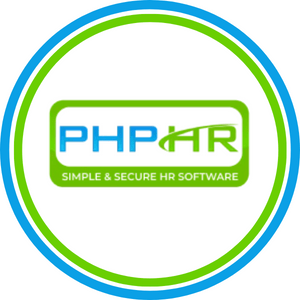Types Of Interviews In Company

Interviews are designed to learn what another person knows about a topic, to discover and record what that person has experienced, what he or she thinks or feels about it, and what significance and meaning it might have. It is an important research tool because skillful, sensitive and insightful interviews generate a rich set of accounts of the interviewee’s experiences, knowledge, ideas and impressions and facilitate understanding of individuals’ public and private lives as well as their thoughts and emotions.
Types of Interviews In Company

Screening Interview
The purpose of these kinds of interviews is to assess the skills and qualifications of potential candidates and reject those who lack the necessary qualification and cannot meet job requirements. Only those candidates who have adequately met job requirements or have certain talent may pass this interview phase. This interview is usually short and candidates are supposed to prove themselves in the brief to qualify for the job.
Phone Interview
Phone interviews are useful for pre-selecting or screening a number of candidates for a potential job. It helps to narrow the candidate pool and selects out those who shall be invited to personal interviews. This method also helps to reduce the cost of interviews as it reduces the number of candidates for personal interviews.
Stress Interview
As the word stress indicates, the pressure, or worry. In this interview, a number of interviewers continuously ask questions and in turn causes pressure on the candidate. They do so to evaluate their ability to handle high pressure and their ability to work under burden. Usually, these interviews are scheduled by experienced interviewers.
Group Interview
This type of interview involves a number of interviewers asking questions to a group of candidates. The purpose behind this method is to select potential candidates for management positions or public positions. This topic is given to a group and asked to debate on that. And interviewers observe and assess the candidates’ ability to communicate, persuade and discuss with others, and at the same time they also assess the candidates’ ability to reason and cooperate with others.
Panel Interview
In this type of interview, candidates are asked to answer questions of several interviewers who are employees of the company. They can ask to show their skills and qualifications or describe the details in their resume. In addition, they can ask to solve problematic situation raise by a panel as they seek to know how well a candidate can utilize his or her knowledge and skills in a real-life situation.


Behavioral Interview
In these types of interviews, the goal is to identify whether the candidates have suitable skills for the job. The interviewers shall not ask what you will do, but instead, what you did. They want to know how you handled certain circumstances that they have experienced in the past and based on candidates answer they will evaluate how well they handle such circumstances in the future.
Case or situational Interview
In these interviews, candidates are asked to resolve a problem, a situation or a conflict at work that might have occurred or may occurred in future in relation to the job.
One-to-One Interview
In this type of interview, candidates will participate directly in an interview with an interviewer. Usually, this interview is conducted for those candidates who have passed the panel or group interview.
Follow-up Interview
Sometimes thousands of applicants apply for jobs, which makes the recruitment process complex. In such cases, interviewer conduct follow-up interview to reach the potential candidate.
Structured Interview
In this interview interviewee get chance to show their skills and knowledge briefly and at the same time it also gives chance to interviewer to evaluate the responses and compare them. And the best one is chosen.

Advantages Of Interviews
Finding the right candidate
Interview is the best method to candidates’ skills and personality which helps to find the potential candidates for the job.
Extracting additional information
An interview allows the interviewer to ask questions that may reveal additional information useful for making a selection decision. This is important, especially when there are many applicants with similar skills.
Company’s do not schedule all the above interviews. All these types help companies to conduct interviews according to their hiring position.






